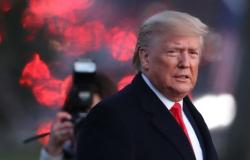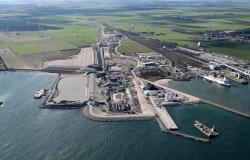What democratic country in the last thirty years Was it governed by the same party? Few, other than South Africa: in the elections on Thursday 29 May the African National CongressNelson Mandela’s party founded way back in 1912, obtained “only” 40% of the votes, falling from 58% in 2019 and losing its absolute majority for the first time.
The negotiations
Over the next two weeks the ANC will try to agree on a coalition government, given that it can no longer govern alone. There is no prospect of a real, healthy alternation in power, because the opposition is divided and in any case does not have the numbers to oust the African National Congress: Democratic Alliance obtained 22%, Mz (the Spear of the Nation) almost 15%, the Economic Freedom Fighters (EFF) 10%.
A sharp decline in the party’s leadership since 1994 (when it obtained 64% of the vote) was expected. Few imagined that it would drop to 40%. But the problems that afflict the majority of South Africa’s 60 million people amply justify disaffection with the party that ended the yoke of apartheid.
Unemployment and the post-apartheid generation
42% of voters are under 40: They were small children when Nelson Mandela was released in 1990, they did not experience the harsh times of racial segregation. But they know well the hardships of the present: the unemployment rate in the Rainbow Nation is 32%. That among young people (aged 15 to 34) it is around 45%, the highest in the world: one in two kids has no job, they just make do. How can we be surprised if in such a country the governing party is “punished” at the polls? This would be normal in any free democracy. And South Africa is a country where voting is free. If anything you could say: why did it take them so long?
School, electricity, violence
Unemployment: 72% of unemployed people would trade their right to vote for a job. Endemic corruption (an indirect signal: almost 100 aspiring local administrators have been killed from 2022 to today, a sign that politics is perceived as a source of enrichment that makes it worth eliminating the opponent). According to polls, 79% of South Africans consider politicians to be untrustworthy (21% in 2014). School on its knees: 80% of ten-year-old children cannot understand what they read. Over 400 schools are still not equipped with sewage systems. Blackout problem: millions of South Africans are without electricity for 10 hours a day, and the roots are to be found in the state’s inability to cope with the increase in demand in recent decades. And in recent years violence has become a plague again: sixty murders a day, a level that has never been this high for twenty years.
Blacks and whites
The legacy of apartheid has a place, in reality and in political propaganda, on whose fire the populist parties (MK and EFF) and to a lesser extent the left wing of the ANC fan. Certain whites (7% of the population) they make up one-fifth of the middle class and about two-thirds of the wealthiest elite. Blacks, 81% of the total, are the majority in the other three categories that sociologists take into consideration: the chronically poor, the “occasional poor”, the vulnerable just above the poverty line. But the failure of a country where wages have been reduced (today to a lower level than 15 years ago) and private investments have halved as a percentage of GDP is not due to the wounds of racial segregation.
Failure to replace
The political class and the state machinery would need a significant renewal. Competence, honesty, vision. The fear is that this electoral shock will not produce the necessary change of pace. The outgoing president Cyril Ramaphosa, who had raised great hopes when he replaced the corrupt Jacob Zuma in 2019, has failed to deliver on his promises. There are no substitutes of value capable of asserting themselves within the party. Among the parties that could constitute the salt of a next government coalition, two bring above all poison. Mk is led by the old Zuma, the champion of State Capture, state theft, who wants to take revenge on Ramaphosa: JZ denounces non-existent fraud and waves the disguised threat of a popular uprising in KwaZulu Natal, his province where he obtained “only” 45%, if not new elections will be held (which will raise him above 50%). He seems more ready for negotiations Julius Malema: the red beret defector from the ANC, who founded the Economic Freedom Fighters more than ten years ago, says he is willing to govern with his old comrades (as he has already done at local level, with disappointing results). It is not clear what he is asking for in exchange: probably also a place at the great banquet of the division of public money.
The embrace with the Democratic Alliance
The Democratic Alliance (DA) would remain, which brings with it 22% of votes but also the reputation of heir to the “white party”: the principles of the free market and the liberalization of the economy agree with those of President Ramaphosa, who officially The ANC continues to support him as leader (the condition of his departure to begin dialogue was rejected by the sender). But the former trade unionist turned mining magnate, Mandela’s chief negotiator in 1994 during the negotiations with the white regime for the end of apartheid, emerged battered from the elections and does not have much room for manoeuvre: the left wing of the party would like replace him with number two in the secretariat Paul Mashatile, close to Malema and not opposed by Zuma, considering it dangerous to embrace the Democratic Alliance along the lines of the national unity government led by Mandela, the only coalition experience that South Africa has known.
Spectrum Zimbabwe
An exercise in democracy, as the ANC leaders call this new phase, to exorcise the defeat at the polls. “The people have spoken and their voice must be respected,” Ramaphosa said today. In South Africa’s proportional electoral system, one person’s defeat does not necessarily mean someone else’s victory. The fall of the ANC does not coincide with the rise of a strong and cohesive opposition. Hence the risk and fear that the disintegration of the country that has long been a beacon of the continent could continue, as happened to its neighbor Zimbabwe: It took 27 years for Mugabe’s regime to transform into a dictatorship and the breadbasket of southern Africa into the realm of triple-digit inflation. South Africa has just turned thirty, and at the moment appears without a great future like its unemployed youth.





